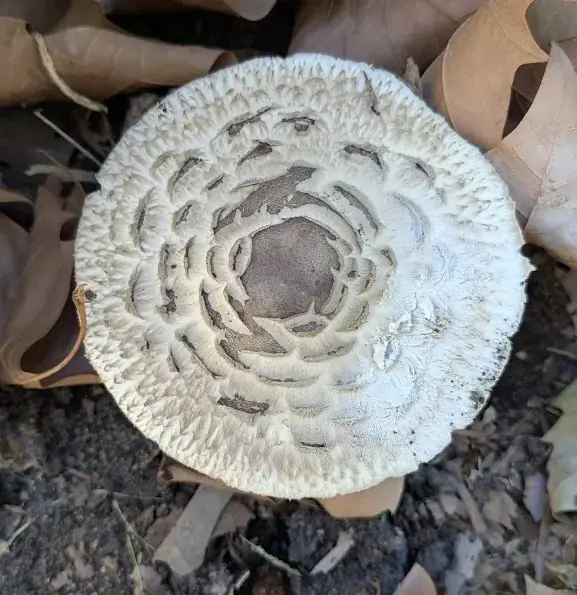Green-spored Lepiota
Chlorophyllum molybdites
Highly Toxic Mushroom: Suspected Green-spored Lepiota

1 / 4
All Images (4)
Key Features
- Large cap with concentric
- dark brown
- peeling scales
- Free
- crowded
- white to cream gills (will turn green with age/spores)
- Prominent
- movable
- double ring on the stipe
- Bulbous base
- growing terrestrially in soil/grass
- Cap center darker and smoother than margin
Color:
White/Cream gills; Tan/Brown scaly cap; Pale brown stem
Smell:
No distinctive smell
Growth Pattern:
Single
Environment:
Soil/Leaf litter
Habitat & Distribution
Habitat:
Lawn or deciduous forest edge
Distribution:
Eastern and Central North America (including Michigan)
Seasonality:
Summer to early Autumn
Critical Features for Confirmation
- Spore print color (green) is the definitive identifier and is not visible
Economic Value
Market Demand:
None - toxic
Price Range:
N/A
Commercial Use:
None
Toxicity Information
Symptoms:
- Severe vomiting
- Diarrhea
- Abdominal cramps
- Dehydration
Onset Time:
1 to 3 hours post-ingestion
First Aid:
- Seek immediate medical attention (Emergency Room)
- Contact Poison Control immediately
Emergency Contacts:
- 911 (US)
- Poison Help (US): 1-800-222-1222
Similar Species
Shaggy Parasol
Chlorophyllum rhacodes
Key Differences:
- Spore print is white/cream (not green)
- Flesh typically stains reddish-brown when cut or bruised
Parasol Mushroom
Macrolepiota procera
Key Differences:
- Stipe usually exhibits a distinct snakeskin (reticulate) pattern
- Spore print is white
Recommended Action
Do not handle. Assume toxicity. Prevent ingestion by humans or pets. Immediate disposal required.